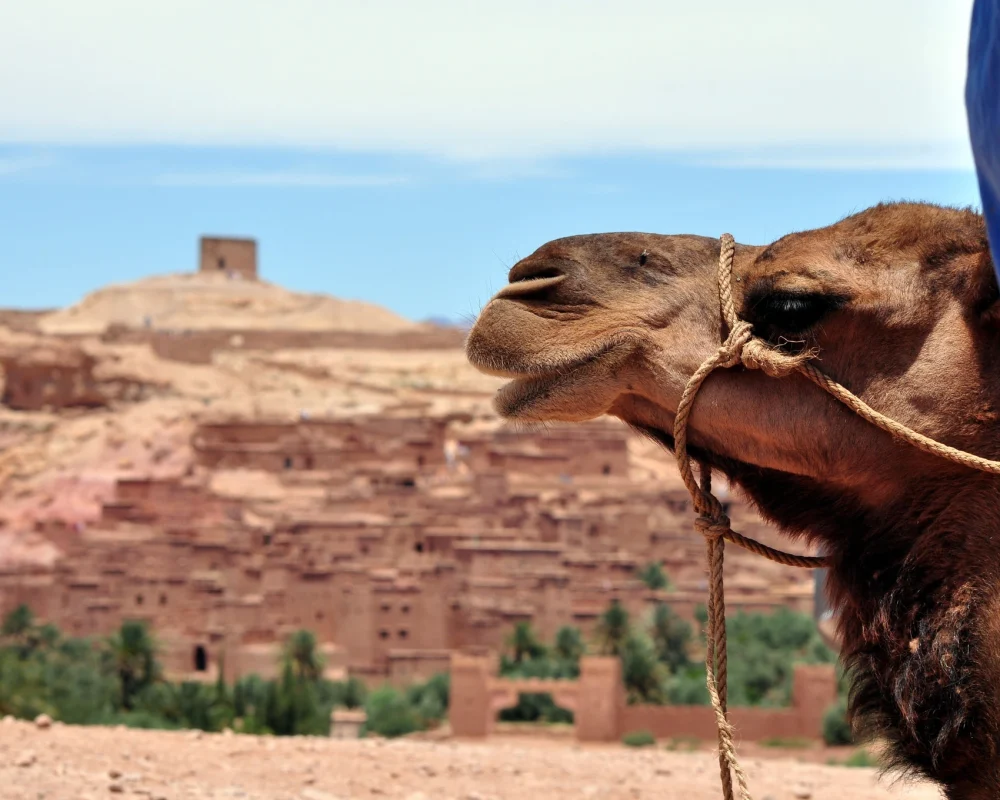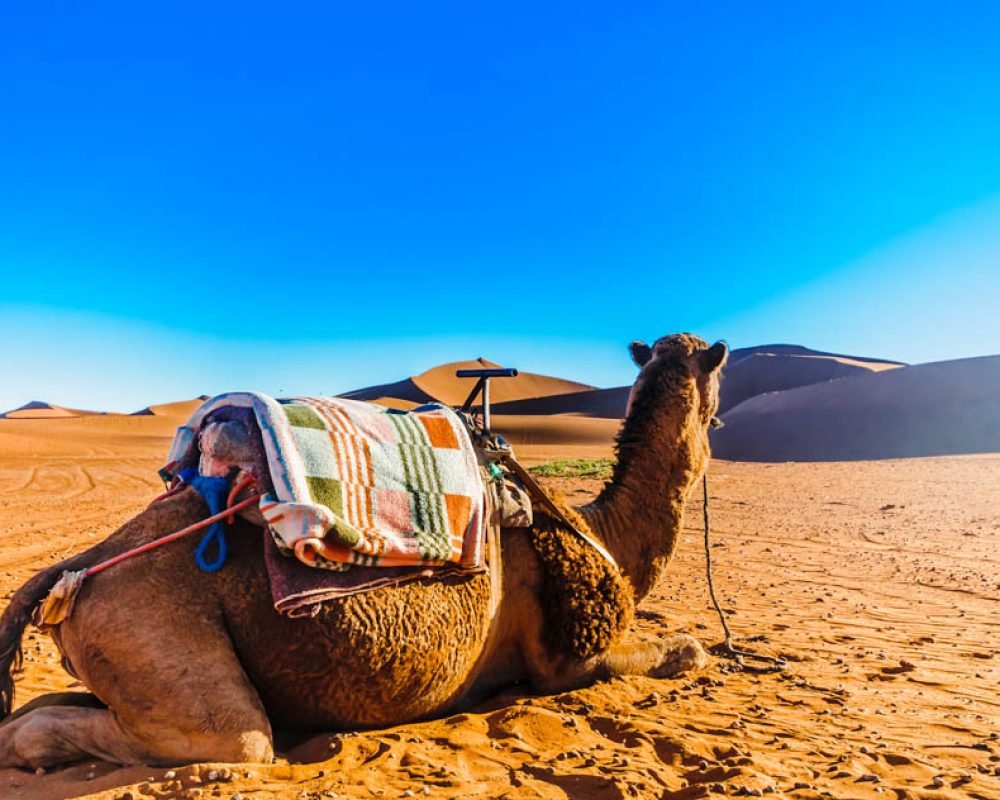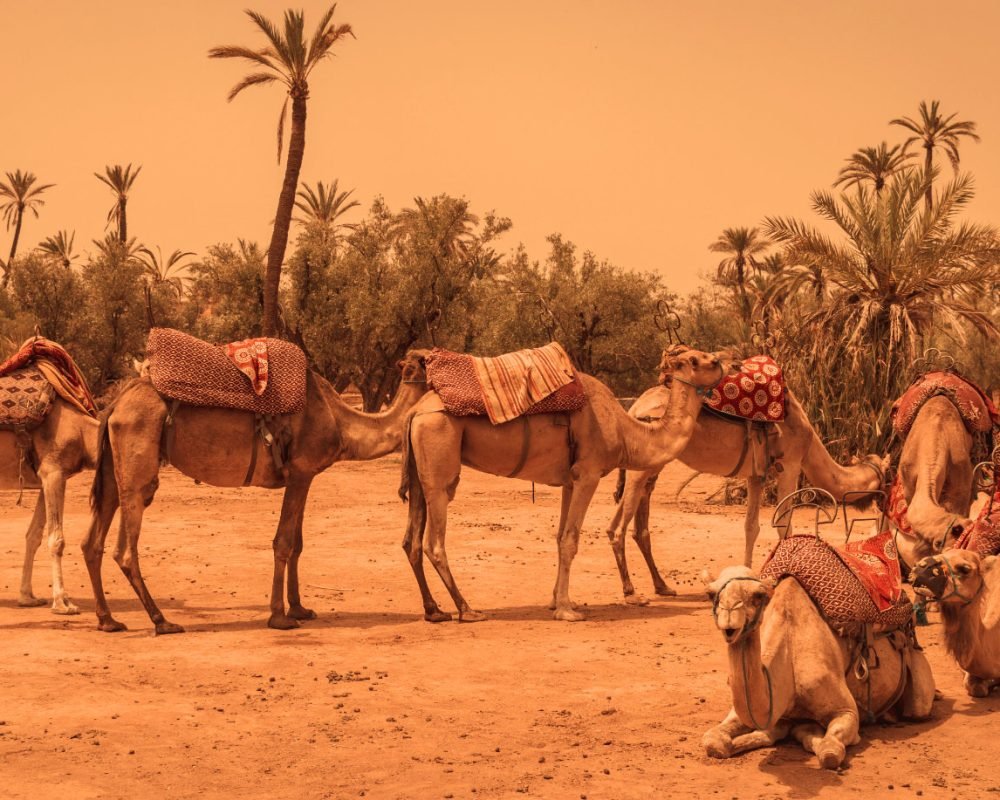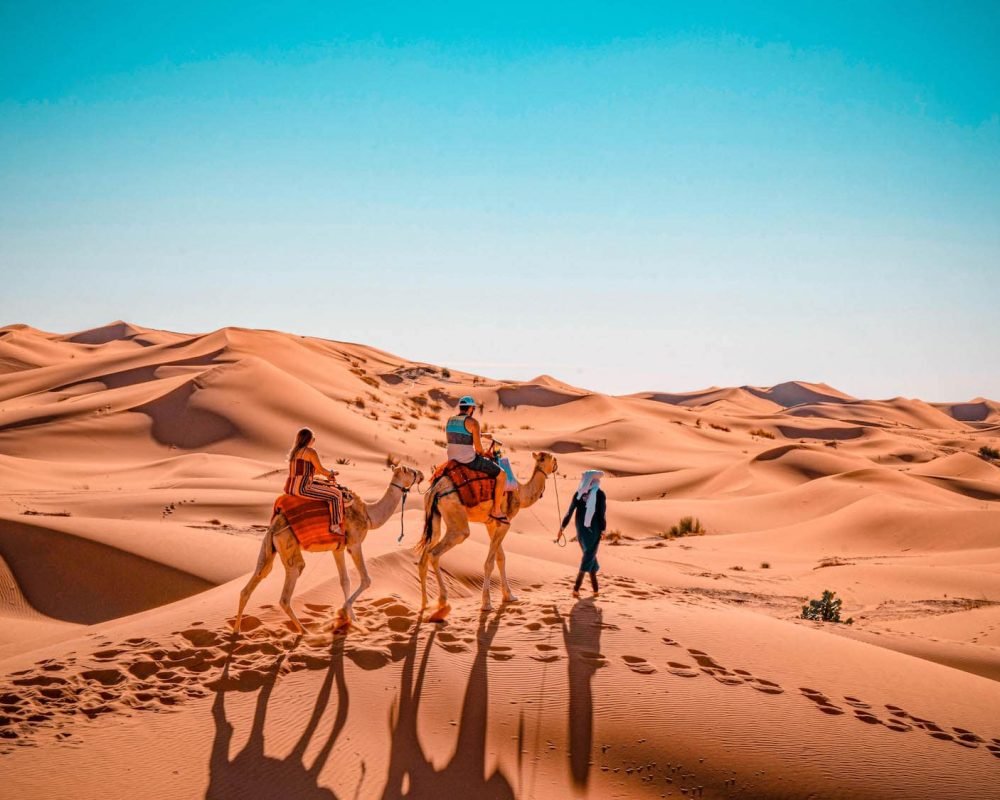



Camel Trekking in Morocco a Journey Through The Desert
Best Locations: Merzouga, Erg Chebbi, Zagora, and the Sahara Desert are popular destinations for camel trekking in Morocco.
Tour Packages: Numerous tour operators offer camel trekking packages varying in duration, from day trips to multi-day excursions, with prices depending on inclusions and accommodations.
Guided Tours: Reputable tour operators such as Morocco Trip Adventure , Oubadi travel offer guided camel trekking tours with experienced guides.
Reviews and Recommendations: Websites like TripAdvisor and travel blogs provide reviews and recommendations from past travelers to help you choose a reliable tour operator.
Duration and Difficulty: Camel trekking tours can range from a few hours to several days, with varying levels of difficulty depending on the terrain and distance covered.
Cultural Experience: Camel trekking offers opportunities to interact with Berber communities, experience their culture, enjoy traditional meals, and perhaps stay in a desert camp.
What to Bring: Essentials include comfortable clothing, a hat, sunglasses, sunscreen, a refillable water bottle, and a camera for capturing memories.
Photography Opportunities: Be prepared to capture stunning landscapes, dunes, sunsets, and camels against the desert backdrop.
Safety Precautions: Follow your guide’s instructions, stay hydrated, protect yourself from the sun, and be mindful of potential hazards in the desert environment.
Cultural Sensitivity: Respect local customs, dress modestly, ask permission before taking photos of people, and engage with locals respectfully to enhance your cultural experience.
Tourists are drawn to the Moroccan desert for several reasons:
Unique Landscape: The Moroccan desert offers a unique and stunning landscape characterized by vast sand dunes, rocky plateaus, and dramatic desert scenery. This landscape provides visitors with a sense of awe and adventure that they may not experience elsewhere.
Cultural Experience: Morocco is known for its rich cultural heritage, and the desert regions are no exception. Visitors have the opportunity to immerse themselves in Berber culture, learn about traditional customs and rituals, and interact with local communities.
Adventure Tourism: The desert provides a perfect setting for various adventure activities such as camel trekking, sandboarding, and 4×4 dune bashing. These activities attract adventure seekers and adrenaline junkies looking for unique experiences.
Star Gazing: The clear desert skies offer unparalleled opportunities for stargazing. Away from the lights of cities, visitors can witness breathtaking views of the night sky and learn about astronomy from knowledgeable guides.
Serenity and Solitude: The vastness of the desert offers a sense of solitude and tranquility that many tourists find appealing. It’s a chance to escape the hustle and bustle of everyday life and connect with nature on a deeper level.
Camping Experience: Spending a night under the stars in the desert is a memorable experience for many travelers. Whether it’s camping in traditional Berber tents or luxury desert camps, the desert offers a unique and unforgettable overnight experience.
Photography Opportunities: The desert’s unique landscapes and lighting conditions provide excellent opportunities for photography enthusiasts to capture stunning images.
Overall, the Moroccan desert offers a combination of natural beauty, cultural richness, and adventure that appeals to a wide range of tourists seeking unique and immersive travel experiences.
Here are some common questions that tourists might search for on Google about the Moroccan desert, along with answers:
What is the best time to visit the Moroccan desert?
- The best time to visit the Moroccan desert is during the cooler months, from October to April. During this time, temperatures are more moderate, making outdoor activities more enjoyable. However, keep in mind that the desert can still be quite cold at night, so bring appropriate clothing.
What are the must-visit destinations in the Moroccan desert?
- Some must-visit destinations in the Moroccan desert include the Erg Chebbi dunes near Merzouga, the Zagora desert, and the Draa Valley. Each of these destinations offers unique landscapes and cultural experiences.
What activities can I do in the Moroccan desert?
- There are plenty of activities to enjoy in the Moroccan desert, including camel trekking, sandboarding, 4×4 desert tours, camping under the stars, and visiting traditional Berber villages.
Are there any safety precautions I should take when visiting the Moroccan desert?
- While the Moroccan desert is generally safe for tourists, it’s important to take some precautions. Stay hydrated, protect yourself from the sun with sunscreen and appropriate clothing, and be mindful of wildlife such as scorpions and snakes. It’s also a good idea to travel with a reputable tour guide or company, especially if venturing into remote areas.
What should I pack for a trip to the Moroccan desert?
- Some essential items to pack for a trip to the Moroccan desert include lightweight and breathable clothing, a hat, sunglasses, sunscreen, a refillable water bottle, sturdy walking shoes or boots, a flashlight or headlamp, and any necessary medications.
How do I get to the Moroccan desert from major cities like Marrakech or Fez?
- Most tourists access the Moroccan desert from cities like Marrakech or Fez by either renting a car and driving themselves or booking a guided tour with transportation included. The journey typically takes several hours, depending on the starting point and destination in the desert.
What are the accommodations like in the Moroccan desert?
- Accommodations in the Moroccan desert range from basic campsites to luxury desert camps with comfortable tents, modern amenities, and traditional Berber hospitality. Visitors can choose the type of accommodation that best fits their budget and preferences